The moments after salah are highly blessed, when duas are more likely to be accepted. Our beloved Prophet ﷺ taught many beautiful masnoon supplications to recite at this time. Some authentic dua after salah include:
- Astaghfirullah – 3 times
- Ayatul Kursi – once
- Subhanallah – 33 times
- Alhamdulillah – 33 times
- Allahu Akbar – 34 times
- Recite last three Surahs
Reciting these Sunnah dua and dhikr brings forgiveness and blessings. In this blog, we’ll explore what are the best duas to say right after finishing salah and understand why they matter.
Importance of Duas after Completing the Prayer
There are various reasons why you should make Dua after each Fard prayer. Some of the reasons are:
1. Dua after mandatory prayers are accepted by Allah. It was asked to the Messenger of Allah ﷺ:
ای الدعاء اسمع؟
“When the supplications are granted more?”
He replied:
جوف اللیل الآخر ودبر الصلوات المکتوبات
“In the last part of the night and after the obligatory prayers.” [Mishkatul Masabeeh: 1/89]
2. Making Dhikr of Allah after Salah expiates sins.
3. Reciting Dua and Dhikr after Salah grants you salvation in Akhirah.
4. Adhkar and Dua after namaz grants you protection from Shirk, evil eye, black magic, etc. Also, they keep you in the blessing and protection of Allah.
5. Allah loves the deeds that are done regularly.
Aisha (R) asked the Messenger of Allah ﷺ about which deeds are most beloved by Allah. He ﷺ replied:
أَدْوَمُهَا وَإِنْ قَلَّ
Meaning: “The most regular constant deeds even though they may be few.” [Shaih Bukhari: 6465]
Thus, by reading the adhkar and saying dua after prayer regularly, your deeds can become beloved by Allah.
It’s highly recommended to download our Sadiq app to get amazing duas with accurate prayer time, qibla direction, and more.
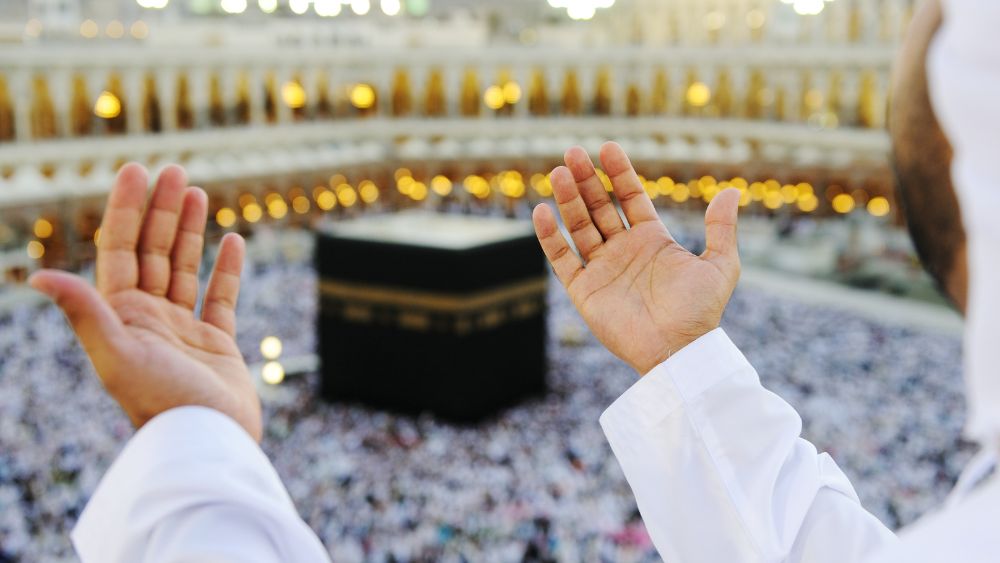
Best Dua after Salah [Fard Prayer]
In general, you can recite any Dua to Allah after finishing your Salah. However, some specific Duas after Fard Salah are mentioned in the books of Hadith. Here we have listed the important ones that our Prophet ﷺ used to say after every obligatory Salah.
1. Takbir
Say 1 time:
أَللهُ أكْـبَر
Meaning: “Allah is the greatest.”
Ibn ‘Abbas (R) said: “We used to know that Allah’s Messenger ﷺ had finished his prayer when we heard the takbir (Allah-O-Akbar).”[Sahih Bukhari, Sahih Muslim]]
2. Istigfar
Say three times:
أَسْتَغْفِرُ اللّهَ
I ask Allah for forgiveness.
Then say:
اَللّهُمَّ أَنْتَ السَّلاَمُ, وَمِنْكَ السَّلاَمُ, تَبَارَكْتَ يَا ذَا الْجَلَلِ وَالْإِكْرَامِ
O Allah, You are Peace and from You comes peace. Blessed are You, O Owner of majesty and honour. [Hisnul Muslim: 66]
You can check our dua app to get the meaning, word-by-word translation, dua audio, save dua option, and more.
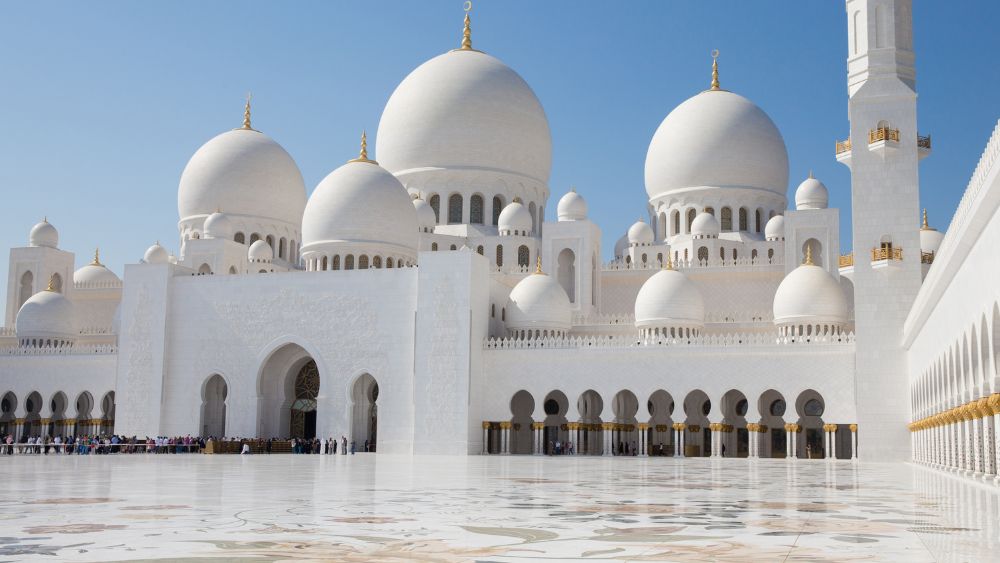
3. Acknowledging the Oneness and Majesty of Allah
لَا إِلٰهَ إِلَّا اللّٰهُ وَحْدَهُ لَا شَرِيْكَ لَهُ، لَهُ الْمُلْكُ وَلَهُ الْحَمْدُ وَهُوَ عَلَى كُلِّ شَيْءٍ قَدِيْرٌ
Meaning: There is no God but Allah; He is alone and has no partners. His is the dominion and His is the praise and He is Able to do all things.
Then say:
اَللّٰهُمَّ لَا مَانِعَ لِمَا أَعْطَيْتَ، وَلَا مُعْطِيَ لِمَا مَنَعْتَ، وَلَا يَنْفَعُ ذَا الْجَدِّ مِنْكَ الْجَدُّ
Meaning: O Allah, there is none who can withhold what You give, and none may give what You have withheld; and the might of the mighty person cannot benefit him against You. [Hisnul Muslim: 67]
4. Dua for Being a Better Servant of Allah
اَللَّهُمَّ أَعِنِّي عَلَى ذِكْرِكَ وَشُكْرِكَ وَحُسْنِ عِبَادَتِكَ
Meaning: “O Allah, help me to remember You, thank You, and worship You perfectly.”
Virtue: Our beloved Prophet (ﷺ) advised Muadh Ibn Jabal (R.) never to leave this dua after every prayer.
[Bulugh Al Maram: Book 2, Hadith 219]
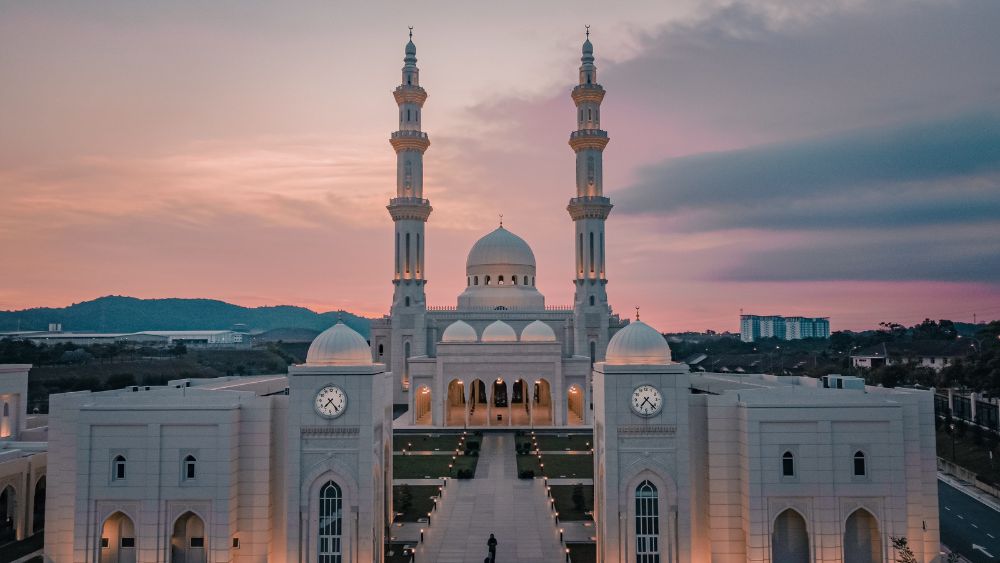
5. Seeking Refuge from Shirk
الَّلهُمَّ إِنِّي أَعُوذُ بِكَ أَنْ أُشْرِكَ بِكَ وأَنا أَعلَمُ وأَستَغفِرُكَ لما لا أَعلَمُ
Meaning: “O Allah, I seek refuge in you lest I associate anything with you knowingly, and I seek your forgiveness for what I know not.” [Musnad Ahmad 4/403, Sahih ul-Jami’ As-Saghir 3/233]
6. Proclaiming the Glory of Allah and Disavowing Shirk
لَا إِلٰهَ إِلَّا اللّٰهُ وَحْدَهُ لَا شَرِيْكَ لَهُ، لَهُ الْمُلْكُ، وَلَهُ الْحَمْدُ، وَهُوَ عَلَى كُلِّ شَيْءٍ قَدِيْرٌ، لَا حَوْلَ وَلَا قُوَّةَ إِلَّا بِاللّٰهِ، لَا إِلٰهَ إِلَّا اللّٰهُ، وَلَا نَعْبُدُ إِلَّا إِيَّاهُ، لَهُ النِّعْمَةُ وَلَهُ الْفَضْلُ وَلَهُ الثَّنَاءُ الْحَسَنُ، لَا إِلٰهَ إِلَّا اللّٰهُ مُخْلِصِيْنَ لَهُ الدِّيْنَ وَلَوْ كَرِهَ الْكَافِرُوْنَ
Meaning: “None has the right to be worshipped but Allah alone, He has no partner, His is the dominion and His is the praise and He is Able to do all things. There is no power and no might except by Allah. None has the right to be worshipped but Allah, and we do not worship any other besides Him. His is grace, and His is bounty and to Him belongs the most excellent praise. None has the right to be worshipped but Allah. (We are) sincere in making our religious devotion to Him, even though the disbelievers may dislike it.” [Hisnul Muslim: 68]
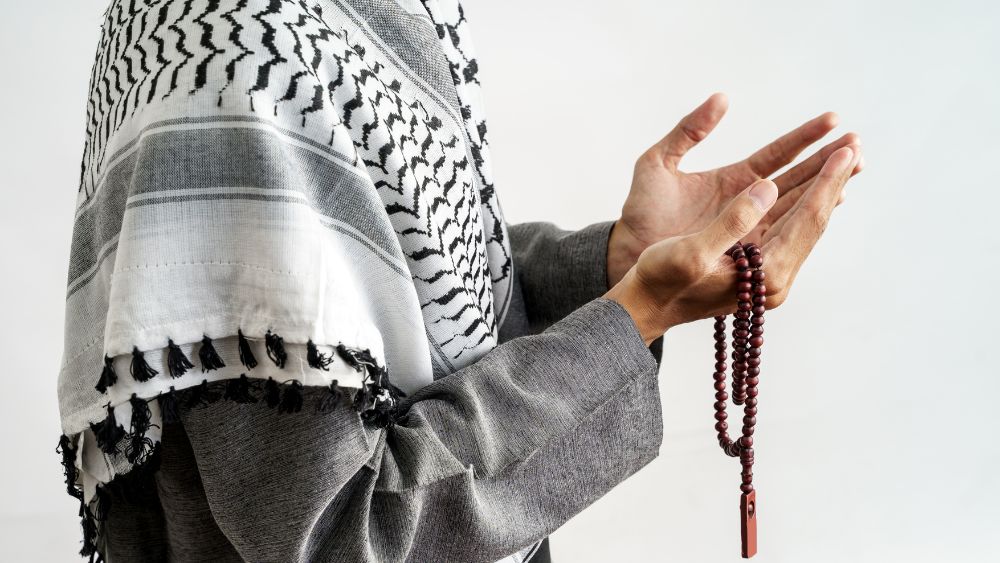
7. Tasbeeh, Tahmid, & Takbir
Say each of the following Dhikhrs 33 times consecutively.
سُـبْحانَ اللهِ
Meaning: “Glory is to Allah.”
أَلحَمْـدُ لله
Meaning: “Praise is to Allah.”
أَللهُ أكْـبَر
Meaning: “Allah is the greatest.”
Afterwards, say:
لا إلهَ إلاّ اللّهُ وَحْـدَهُ لا شريكَ لهُ
لهُ الملكُ ولهُ الحَمْد وهُوَ على كُلّ شَيءٍ قَـدير
Meaning: “None has the right to be worshipped but Allah alone. He has no partner, His is the dominion and His is the praise. And He is Able to do all things.”
Virtue: Whoever says this after every prayer will be forgiven his sins even though they are as the foam of the sea. [Hisnul Muslim: 69]
Note: There are also some ahadith like this one from Sahih Muslim that say you can say Subhanallah 33 times, Alhamdulillah 33 times, and Allahu Akbar 34 times after the obligatory prayer.
8. Ayatul Kursi
ٱللَّهُ لَآ إِلَـٰهَ إِلَّا هُوَ ٱلْحَىُّ ٱلْقَيُّومُ ۚ لَا تَأْخُذُهُۥ سِنَةٌۭ وَلَا نَوْمٌۭ ۚ لَّهُۥ مَا فِى ٱلسَّمَـٰوَٰتِ وَمَا فِى ٱلْأَرْضِ ۗ مَن ذَا ٱلَّذِى يَشْفَعُ عِندَهُۥٓ إِلَّا بِإِذْنِهِۦ ۚ يَعْلَمُ مَا بَيْنَ أَيْدِيهِمْ وَمَا خَلْفَهُمْ ۖ وَلَا يُحِيطُونَ بِشَىْءٍۢ مِّنْ عِلْمِهِۦٓ إِلَّا بِمَا شَآءَ ۚ وَسِعَ كُرْسِيُّهُ ٱلسَّمَـٰوَٰتِ وَٱلْأَرْضَ ۖ وَلَا يَـُٔودُهُۥ حِفْظُهُمَا ۚ وَهُوَ ٱلْعَلِىُّ ٱلْعَظِيمُ ٢٥٥
Meaning: “Allāh – there is no deity except Him, the Ever-Living, the Self-Sustaining. Neither drowsiness overtakes Him nor sleep. To Him belongs whatever is in the heavens and whatever is on the earth. Who is it that can intercede with Him except by His permission? He knows what is [presently] before them and what will be after them, and they encompass not a thing of His knowledge except for what He wills. His Kursī extends over the heavens and the earth, and their preservation tires Him not. And He is the Most High, the Most Great.” [Surah al Baqarah: 255]
Virtue: Whoever recites Aayat al-Kursi immediately after each mandatory prayer, there will be nothing standing between him and his entering Paradise except death. [Hisnul Muslim: 71]
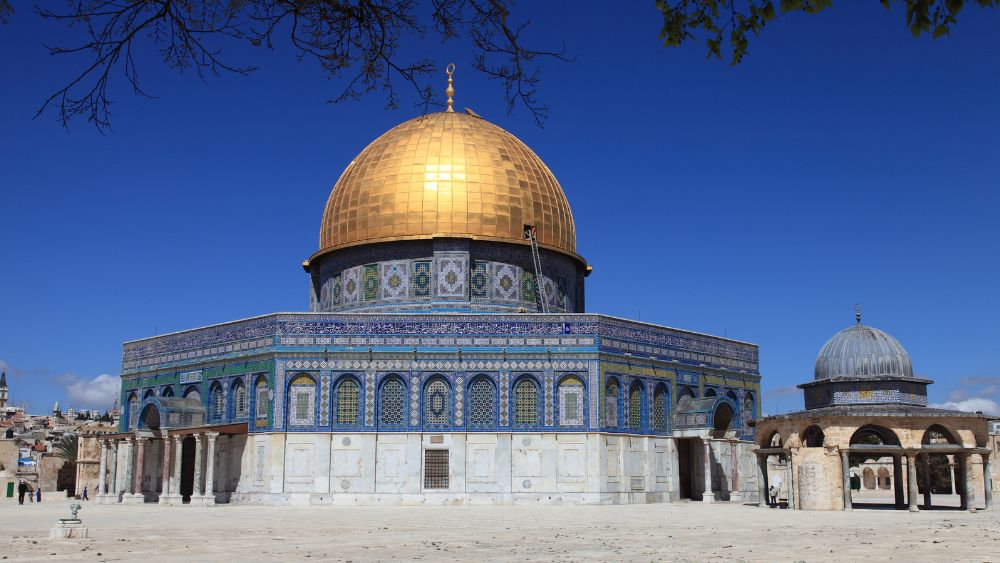
9. Last 3 Surahs of the Quran
Recite the last 3 Surahs in succession after each mandatory Salah. [Hisn Al Muslim: 70]
After Fajr and Maghrib, read each of these Surahs 3 times.
Surah Ikhlas
قُلْ هُوَ ٱللَّهُ أَحَدٌ ١ ٱللَّهُ ٱلصَّمَدُ ٢ لَمْ يَلِدْ وَلَمْ يُولَدْ ٣ وَلَمْ يَكُن لَّهُۥ كُفُوًا أَحَدٌۢ ٤
Meaning: ‘Say, “He is Allāh, [who is] One, Allāh, the Eternal Refuge. He neither begets nor is born, Nor is there to Him any equivalent.”’ [Surah Ikhlas: 1-4]
Surah Al Falaq
قُلْ أَعُوذُ بِرَبِّ ٱلْفَلَقِ ١ مِن شَرِّ مَا خَلَقَ ٢ وَمِن شَرِّ غَاسِقٍ إِذَا وَقَبَ ٣ وَمِن شَرِّ ٱلنَّفَّـٰثَـٰتِ فِى ٱلْعُقَدِ ٤ وَمِن شَرِّ حَاسِدٍ إِذَا حَسَدَ ٥
Meaning: ‘Say, “I seek refuge in the Lord of daybreak. From the evil of that which He created. And from the evil of darkness when it settles. And from the evil of the blowers in knots. And from the evil of an envier when he envies.”’ [Surah Al Falaq: 1-5]
Surah An Nas
قُلْ أَعُوذُ بِرَبِّ ٱلنَّاسِ ١ مَلِكِ ٱلنَّاسِ ٢ إِلَـٰهِ ٱلنَّاسِ ٣ مِن شَرِّ ٱلْوَسْوَاسِ ٱلْخَنَّاسِ ٤ ٱلَّذِى يُوَسْوِسُ فِى صُدُورِ ٱلنَّاسِ ٥ مِنَ ٱلْجِنَّةِ وَٱلنَّاسِ ٦
Meaning: Say, “I seek refuge in the Lord of mankind, The Sovereign of mankind, The God of mankind, From the evil of the retreating whisperer -Who whispers [evil] into the breasts of mankind – From among the jinn and mankind”. [Suurah An Nas: 1-6]
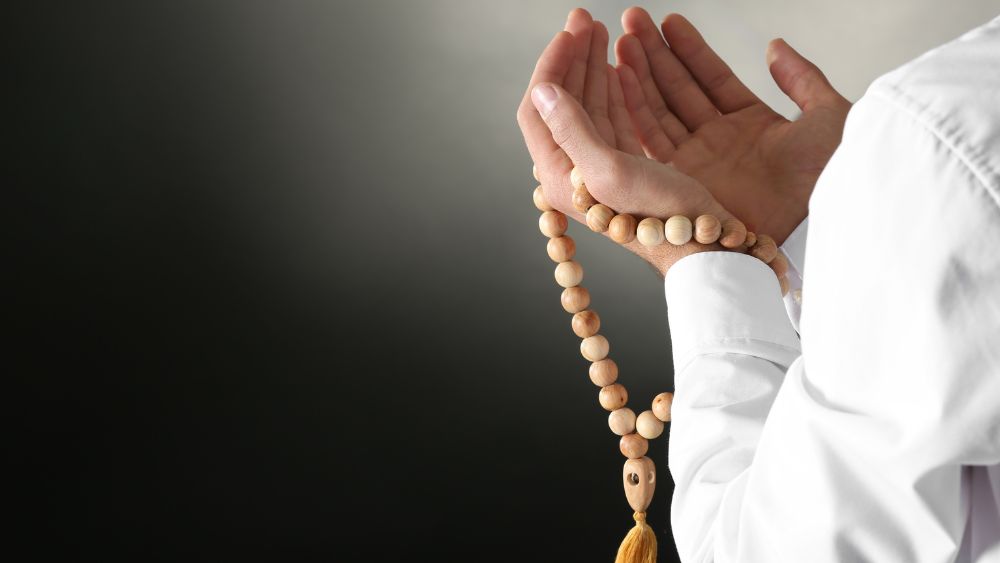
10. Adhkar after Fajr and Maghrib
Recite this Adhkar ten times after Maghrib and Fajr Prayer:
لاَ إِلَهَ إِلاَّ اللَّهُ وَحْدَهُ لاَ شَرِيكَ لَهُ
لَهُ الْمُلْكُ وَلَهُ الْحَمْدُ
يُحْيِي وَيُمِيتُ
وَهُوَ عَلَى كُلِّ شَيْءٍ قَدِيرٌ
Meaning: “None has the right to be worshipped but Allah alone, Who has no partner. His is the dominion and His is the praise. He brings life and He causes death, and He is Able to do all things.” [Hisn Al Muslim: 72]
11. Asking Allah for Beneficial Knowledge
اللَّهُمَّ إِنِّي أَسْأَلُكَ عِلْماً نافِعاً وَرِزْقاً طَيِّباً وَعَمَلاً مُتَقَبَّلاً
Meaning: “O Allah, I ask You for knowledge which is beneficial,
and sustenance which is good, and deeds which are acceptable.” [Hisn Al Muslim: 73]
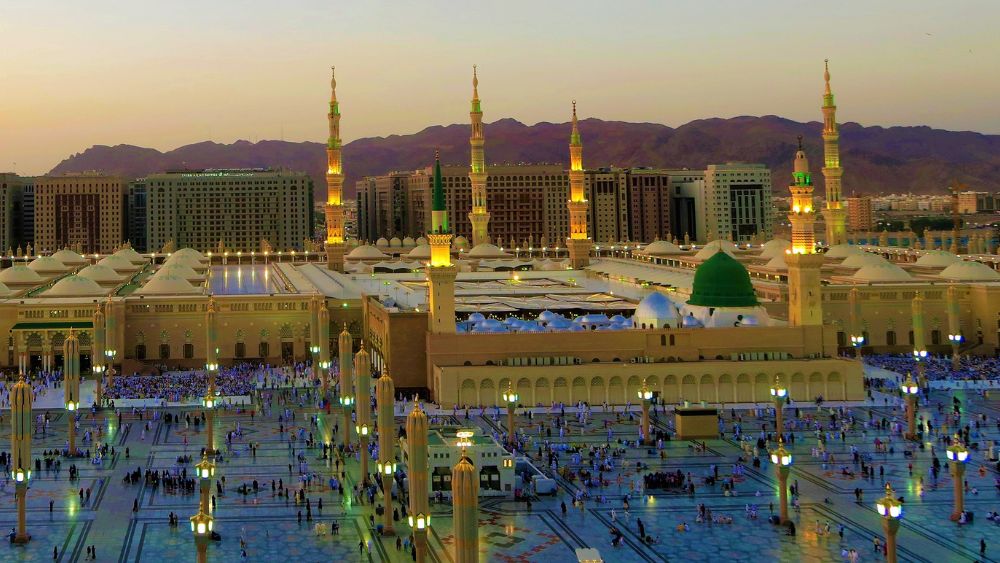
12. Dua after Fajr and Maghrib
Say the following Dua 7 times after Fajr and Maghrib.
اللَّهُمَّ إِنِّي أَسْأَلُكَ رِضَاكَ وَالْجَنَّة، وَأَعُوْذُبِكَ مِنْ سَخَطِكَ وَالنَّارِ
Meaning: “Oh Allah! We ask You to be pleased with us, reward us with the Paradise and we seek Your refuge from Your anger and the punishment of the Fire.” [Sahih Ibn Majah 2/328]
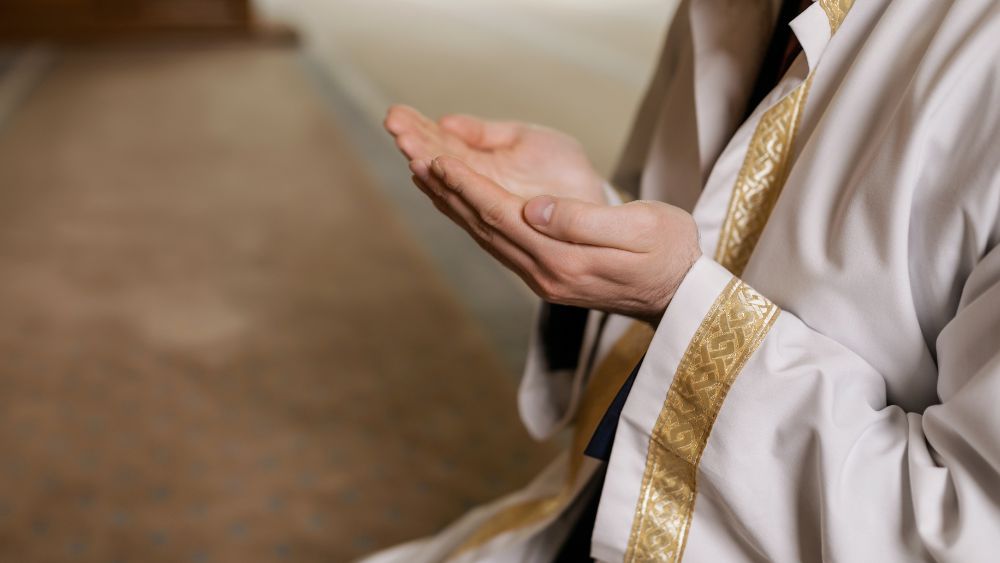
Dua & Dhikr to Say after Other Prayers
Istikhara Dua after Voluntary Prayers
Istikhara means to ask Allah to guide one to the right sort of action concerning any job or deed.
Jaber Ibn Abdullah (R) said, “The Messenger of Allah ﷺ, used to teach us Istikhara in every work, just as he used to teach us the Surahs of the Qur’an. He said, “When one of you intends to do something, he should offer two rak’ahs of Nafal prayer besides the obligatory prayer, then say:
اَللّٰهُمَّ إِنِّيْ أَسْتَخِيْرُكَ بِعِلْمِكَ, وَأَسْتَقْدِرُكَ بِقُدْرَتِكَ, وَأَسْأَلُكَ مِنْ فَضْلِكَ العَضِيْمِ
O Allah! I wish you well with the help of your knowledge. I seek strength from you with the help of your power and pray for your great grace.
فَإِنَّكَ تَقْدِرُ وَلَا أَقْدِرُ, وَتَعْلَمُ وَلَا أَعْلَمُ, وَأَنْتَ عَلَّامُ الْغُيُوْبِ
Because you are strong, I am weak. You are wise, I am unwise and you are wise in occult matters.
اَللّهُمَّ إِنْ كُنْتَ تَعْلَمُ أَنَّ هٰذَا الْأَمْرَ (وَيُسَمِّي حَاجَتَهُ) خَيْرٌ لِيْ ِيْنِيْ وَمَعَاشِيْ وَعَاقِبَةِ أَمْرْهْ ُ لِيْ وَيَسِّرْهُ لِيْ ثُمَّ بَارِكْ لِيْ فِيْهِ
O Allah! If this deed (mention your need in between the bracketed part of Arabic dua) according to Your knowledge is good for my deen, my livelihood and the outcome of my deed, (or said) in this life and the Hereafter, then decree it for me and make it for me. Make it available, then bless it for me.
وَإِنْ كُنْتَ تَعْلَمُ أَنَّ هٰذَا الْأَمْرَ شَرٌّ لِيْ فِيْنِيْ وَمَعَاشِيْ أَمْرِيْ فَاصْرِفْهُ عَنِّيْ وَاصْرِنِيْ عَنْهُ اقْدُرْ لِيَ الْخَيْرَ حَيْثُ كَانَ, ثُمَّ أَرْضِنِيْ بِهِ
And if this act, according to Your knowledge, is harmful to my deen, my livelihood, and the consequences of my work, (or said) in this life and the Hereafter, then keep me away from it and appoint for me the good wherever there is good. Then satisfy me with that.
Virtue: Whoever seeks the counsel of the Creator will not regret it and whoever seeks the advice of the believers will feel confident about his decisions. [Hisnul Muslim: 74]
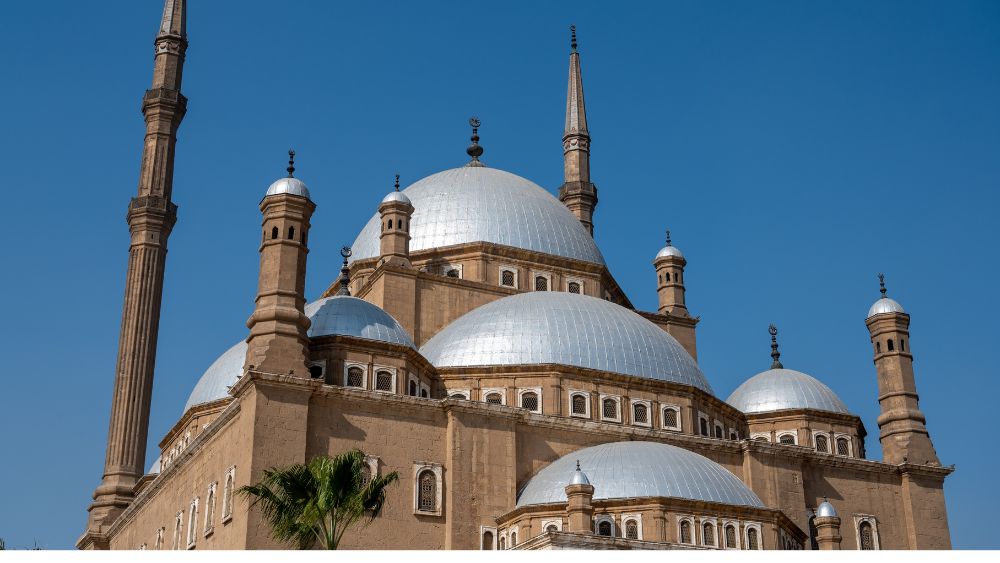
Supplications after Witr Prayer
Say the following Adhkar three times. Raise and extend your voice the third time.
سُبْحَانَ الْمَلِكِ الْقُدُّوْسِ
Meaning: Glory is to the King, the Holy.
Then say:
رَبِّ الْمَلَائِكَةِ وَالرُّوْحِ
Meaning: Lord of the angels and the Spirit (Jibril). [Hisn al Muslim: 119]
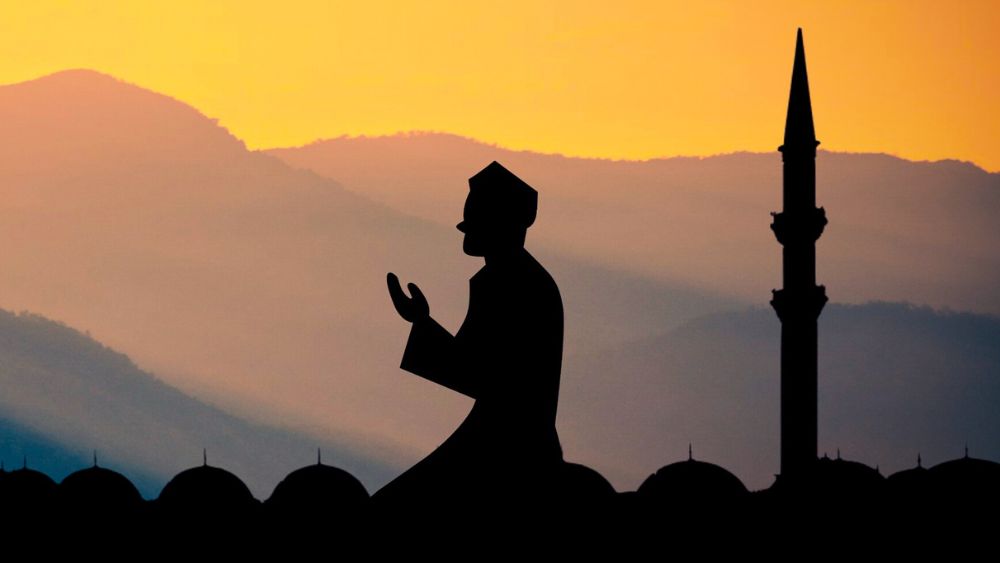
Dua for Rain after Salatul Istisqa
Salatul Istisqa is the prayer for rain. It is prayed in congregation in an open field asking Allah for rain. It is a proven Sunnah of Rasulullah ﷺ. After finishing the prayer, the Messenger of Allah ﷺ would say the following Dua:
الْحَمْدُ لِلَّهِ رَبِّ الْعَالَمِينَ * الرَّحْمَنِ الرَّحِيمِ * مَلِكِ يَوْمِ الدِّينِ لاَ إِلَهَ إِلاَّ اللَّهُ يَفْعَلُ مَا يُرِيدُ اللَّهُمَّ أَنْتَ اللَّهُ لاَ إِلَهَ إِلاَّ أَنْتَ الْغَنِيُّ وَنَحْنُ الْفُقَرَاءُ أَنْزِلْ عَلَيْنَا الْغَيْثَ وَاجْعَلْ مَا أَنْزَلْتَ لَنَا قُوَّةً وَبَلاَغًا إِلَى حِينٍ
Meaning: Praise be to Allah, the Lord of the Universe, the Compassionate, the Merciful, the Master of the Day of Judgment. There is no god but Allah Who does what He wishes. O Allah, you are Allah, there is no deity but you, the Rich, while we are the poor. Send down the rain upon us and make what you send down a strength and satisfaction for a time.
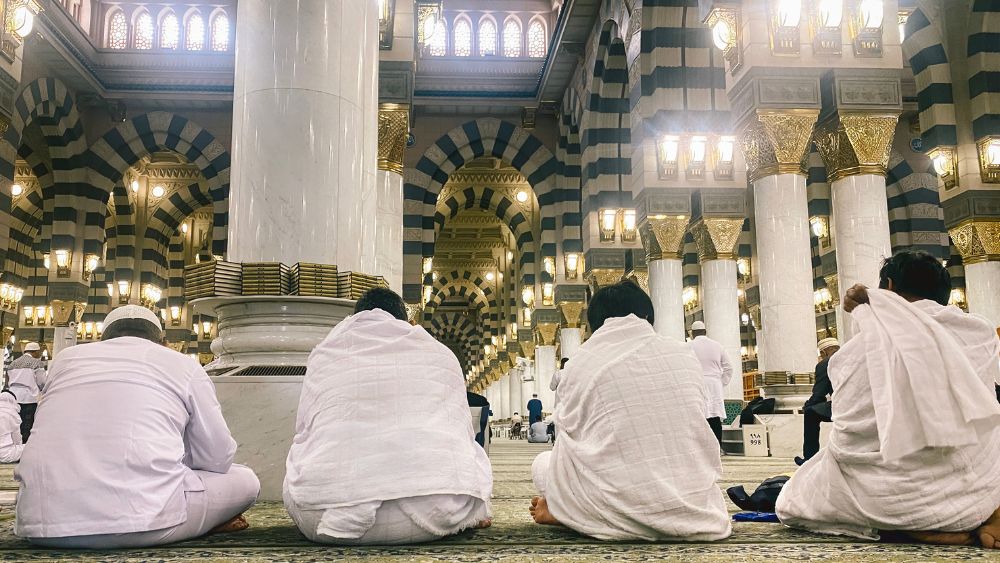
Frequently Asked Questions
Is making Dua in congregation after each mandatory Salah proven in the Sunnah?
Making Dua in congregation with the Imam after each mandatory prayer is not proven in the Sunnah. Rather one should make the Masnoon Dua and Adhkar mentioned in authentic Hadiths.
What is the shortest but most important dua after salah?
Astaghfirullah -أَسْتَغْفِرُ اللهَ – (3 times)
“I ask Allah for forgiveness”
This is directly from authentic hadith and should be said three times immediately after giving salam.
Conclusion
Making dua after Salah is the Sunnah of our beloved Prophet ﷺ. By consistently reciting these supplications and Adhkar, we can draw closer to Allah’s love and reap abundant rewards both in this life and the hereafter.
Thus, let us make it into our daily habit to read these Adhkar and Dua right after finishing salah. May Allah accept our deeds and purify our intentions, Ameen.
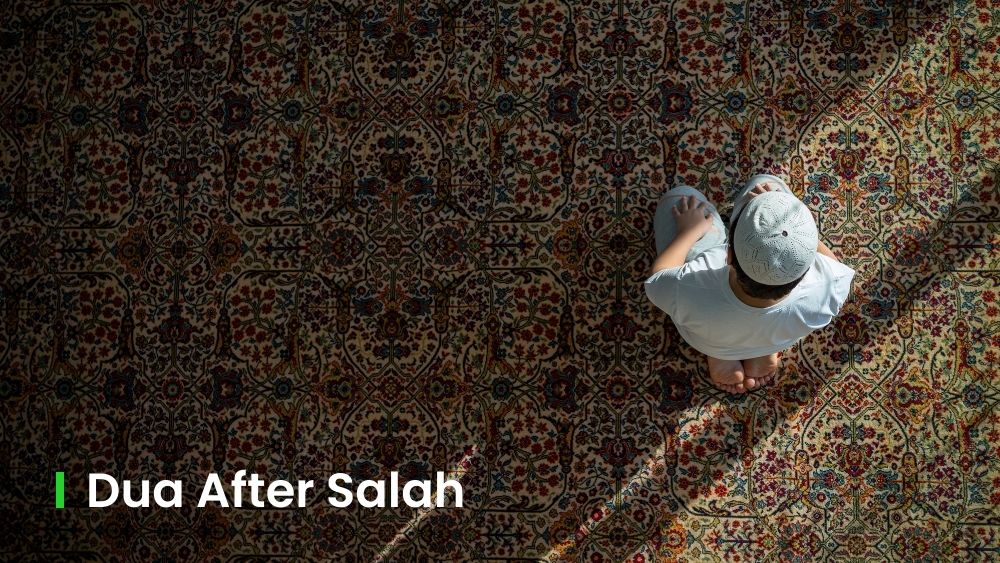
Leave a Reply